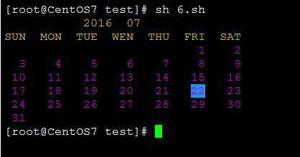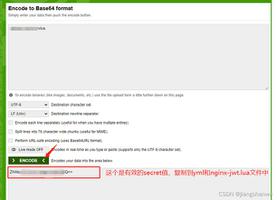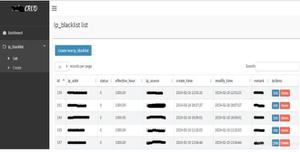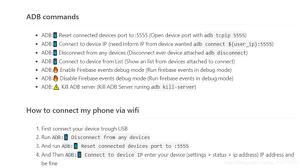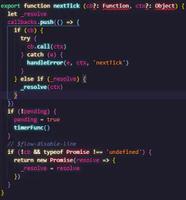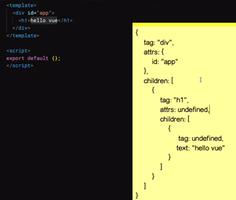Analysis of Front-End SSRF in Discuz x3.4
Author: LoRexxar'@Knownsec 404 Team
Date: December 7, 2018
Chinese Version: https://paper.seebug.org/756/
On December 3, 2018, @L3mOn disclosed a front-end SSRF in Discuz x3.4. By using a secondary jump and two parsing problems, the SSRF attack chain can be cleverly completed.
https://www.cnblogs.com/iamstudy/articles/discuz_x34_ssrf_1.html
In the process of recurrence with my partner @dawu, it is found that the vulnerability itself relies on multiple features, resulting in a variety of reductions in the exploitative environment and span dependencies on some of the conditions, which greatly reduces the harm of the vulnerability. Let's analyze this vulnerability in detail.
The Conditions of Vulnerability
The version < 41eb5bb0a3a716f84b0ce4e4feb41e6f25a980a3 (The patch link)
PHP version > PHP 5.3
php-curl <= 7.54
DZ runs on port 80
The default does not affect Linux (not 100% confirmed, the common testing environment of Linux is unaffected)
Vulnerability Recurrence
SSRF
First of all, the location of the vulnerability point is: /source/module/misc/misc_imgcropper.php line 55.

Here the the variable of $prefix is / and the remaining code is controllable, then we enter the function.
/source/class/class_image.php line 52 Thumb function
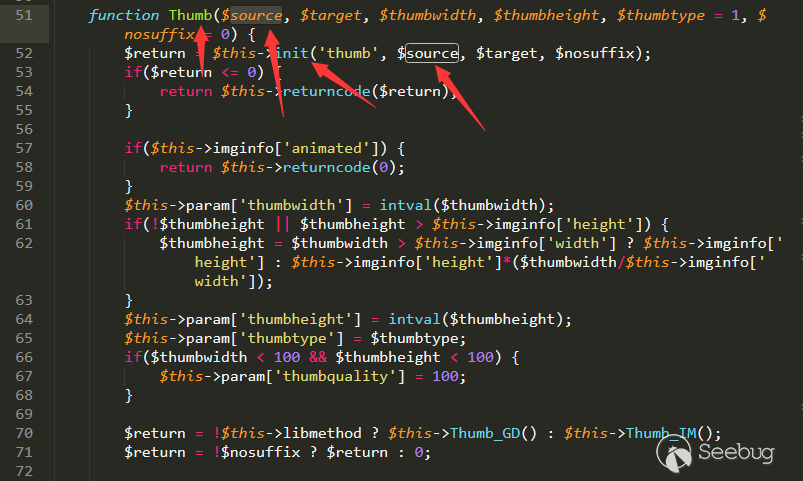
Then follow into the init function (line 118)
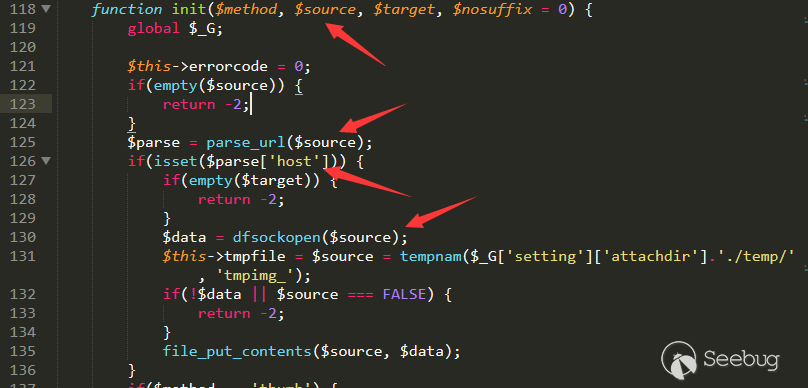
Obviously, as long as the parse_url parses the host, the request can be sent via dfsockopen.
A common trick: since there will add / in the front, the source must begin with /.
//baidu.comSuch a link will automatically add the protocol, as for how to add it depends on how the specific client is written.
Then we follow dfsockopen to /source/function/function_core.php line 199.

Then to source/function/function_filesock.php line 31.
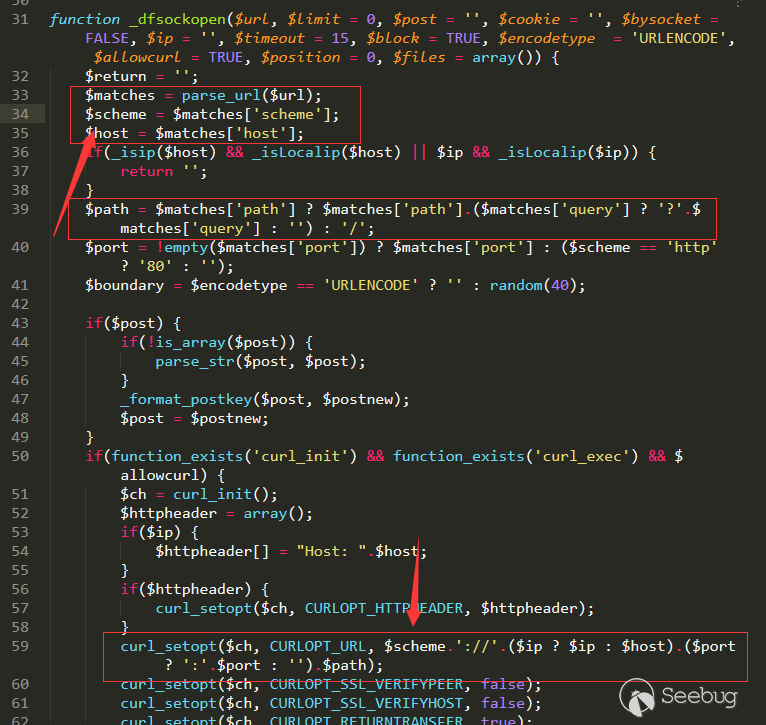
The main code is in the red box, and you can see that the address of the request is the corresponding target under parse_url.
As mentioned earlier, the front of the link is /, so the parse_url here is limited.
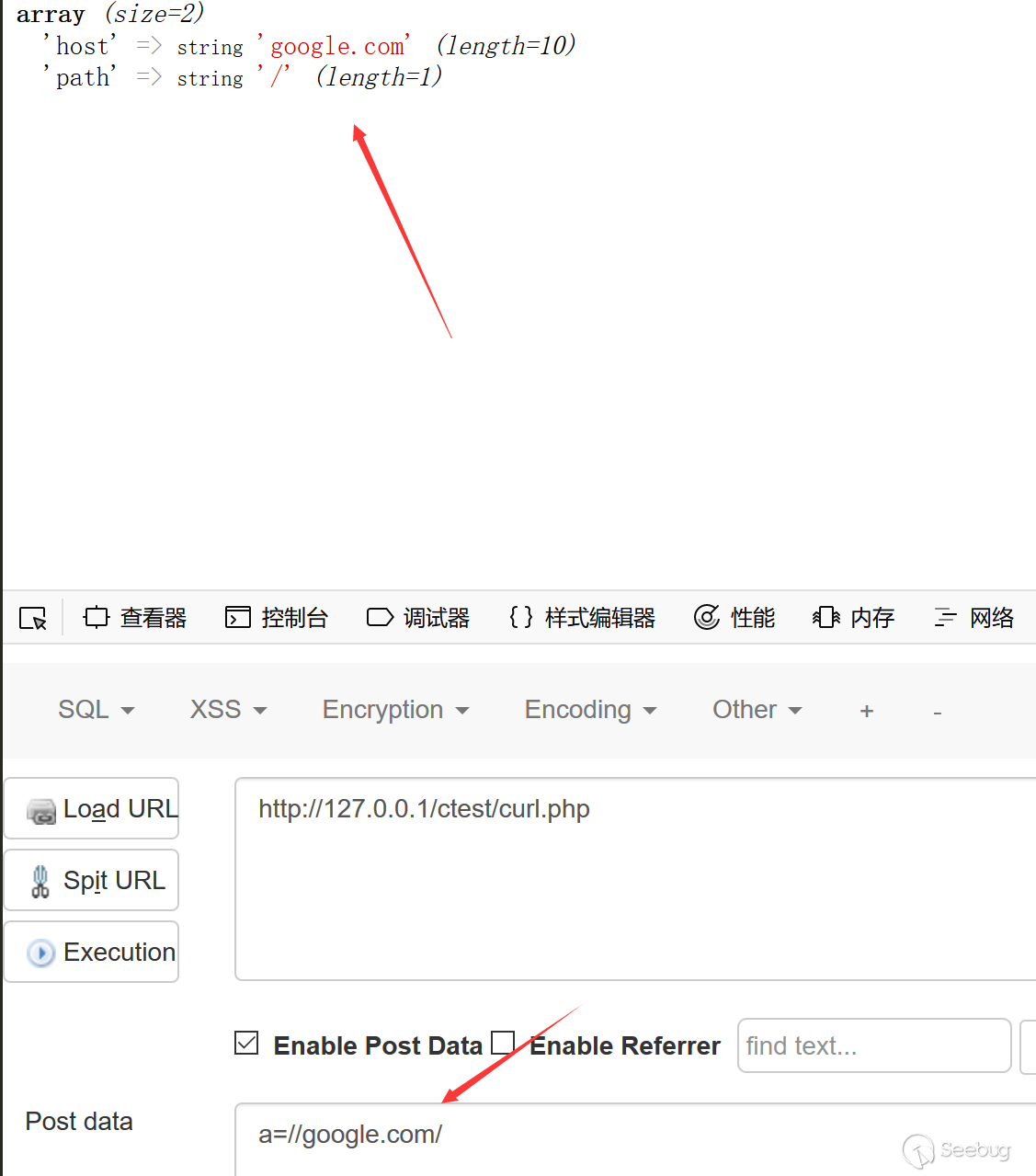
Since there is no scheme, the link to the final curl access is:
://google.com/So adding the protocol automatically in the front is just like follows:
http://://google.com/Here occurs a very serious problem: for curl, where exactly does requesting an empty host go?
In Windows, the version of libcurl: 7.53.0.
Here you can see that the ip of my local ipv6 is requested.
In the Linux environment (ubuntu), it is 7.47.0 as in the screenshot.

Having tested a variety of common systems, there is no curl version that will not report errors during the process, and we temporarily think that it only affects the server environment of Windows.
Back to the code conditions, we can review the previous conditions:
(1) Firstly we need to ensure that /{} is controllable, and there is host under the parse_url operation.
To satisfy this condition, we must first have a clear understanding of the results of parse_url.
In the absence of a protocol, it seems that the protocol or port (: number) cannot appear in the parameter, otherwise the first segment will not be parsed into host (don't know the exact reason).
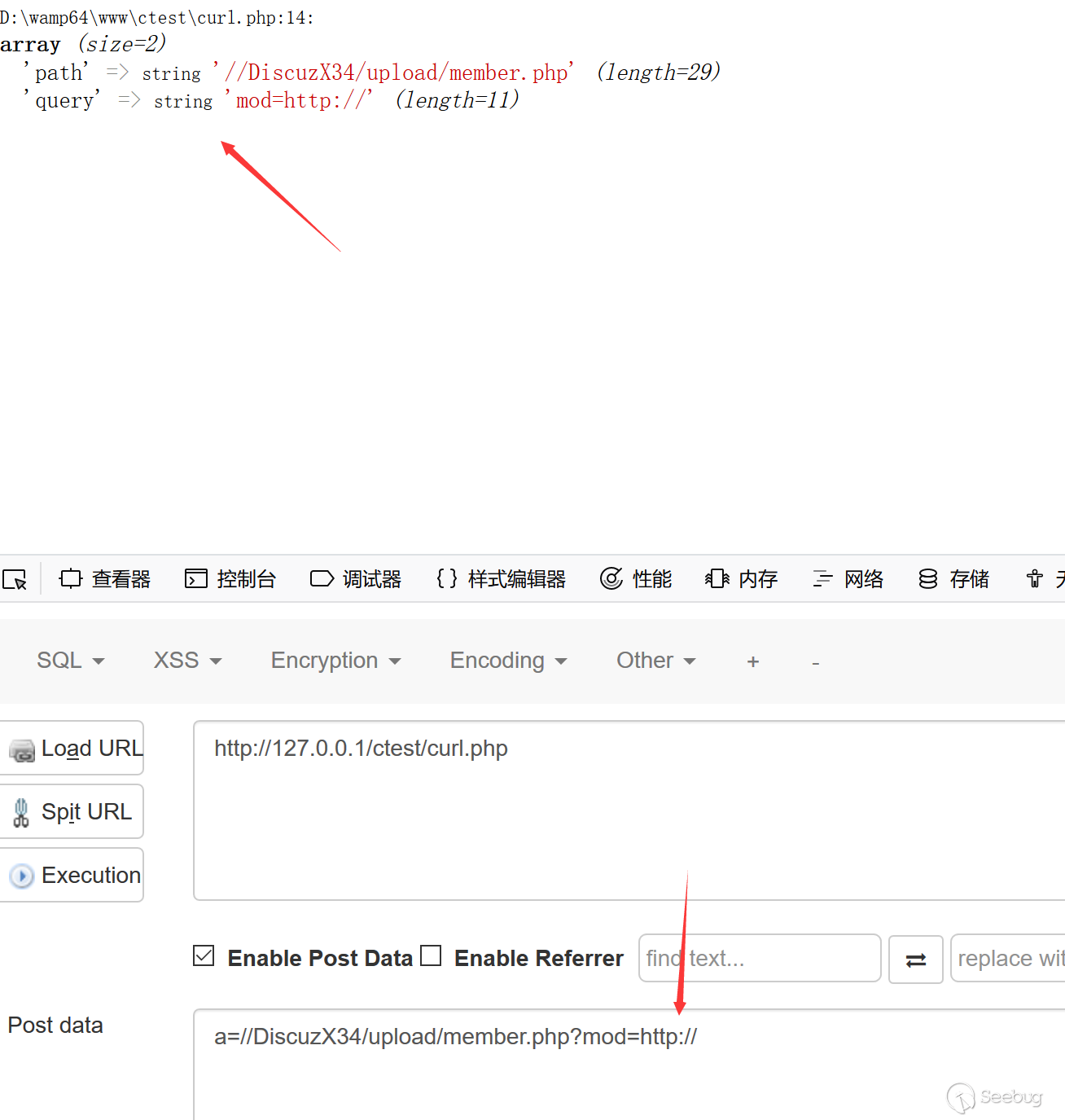
In this case, we only need to remove the HTTP that may appear later, because in the absence of a protocol, HTTP will be added by default (in general).
(2) Curl must be able to parse empty host into localhost, so the libcurl version needs to be under 7.54.0, and so far it only affects Windows servers. (welcome for further rebuttal
(3) DZ runs on port 80
Having satisfied all the conditions, we actually requested arbitrary local directory.
http://://{可控}===>
http://127.0.0.1/{可控}
But this is actually useless, so we still need an arbitrary url to jump, otherwise it makes little sense if it can only attack the local.
URL Redirector Abuse
In order to be able to interact with the previous requirements, we need an arbitrary url jump which is the "get" type and does not require login.
Dz will get the value from the referer parameter (not the header parameter) when in the logout, and then enter the 301 to jump, and the only requirement here is to have some verification on the host, let’s look at the code.
/source/function/function_core.php:1498
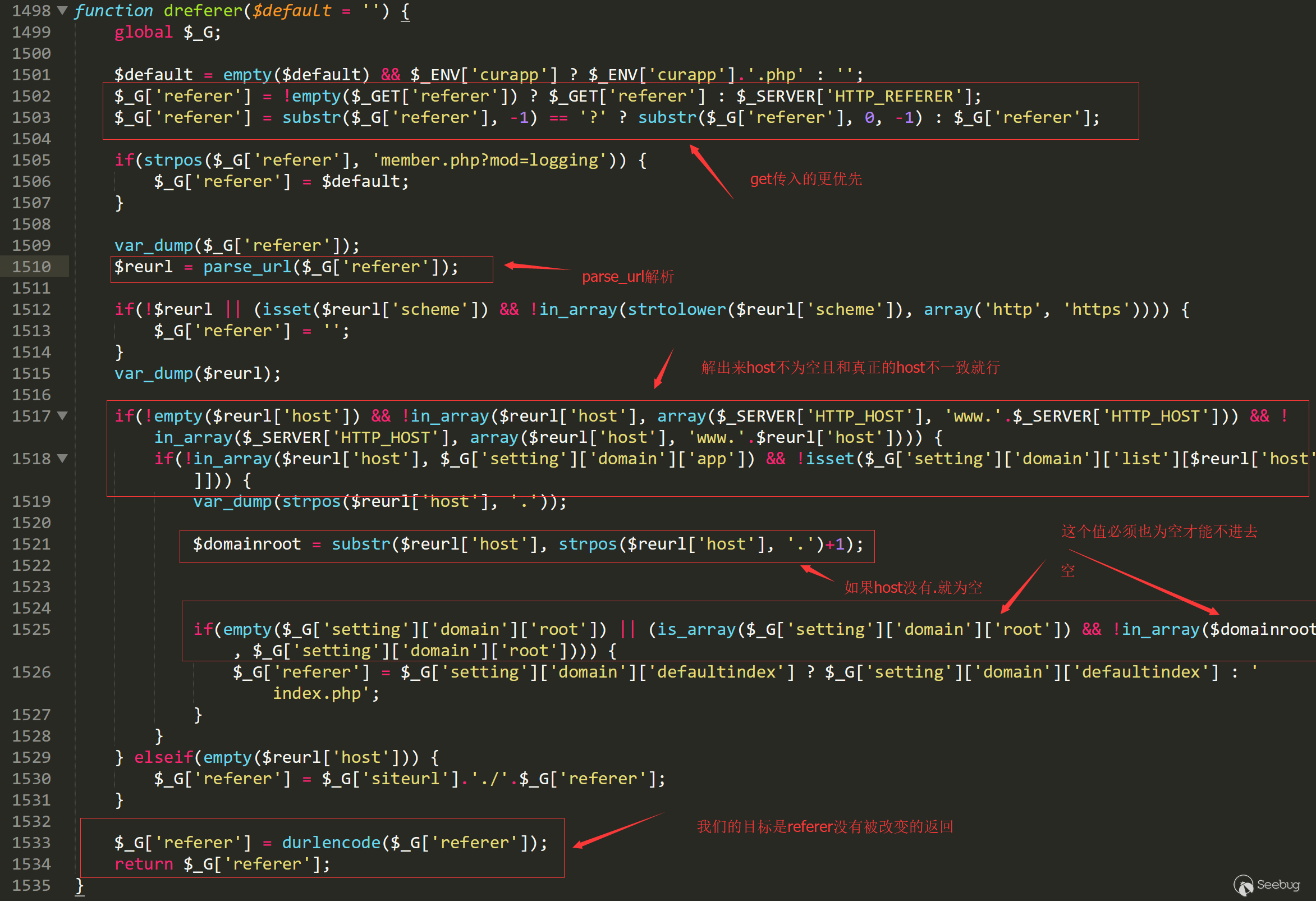
The screenshot above explains the main problem with this code, and the core code is framed in red.
In order for the referer not to change, we must make the host only have one character, but obviously, if the host can only have one character, we can't control arbitrary url jump.
So we need to find a way to get parse_url and curl to parse at odds with the target of the same url in order to possibly achieve our goal.
http://localhost#@www.baidu.com/parse_url parses the above link as localhost, and the curl is explained as www.baidu.com.
Let’s capture a packet to take a view:
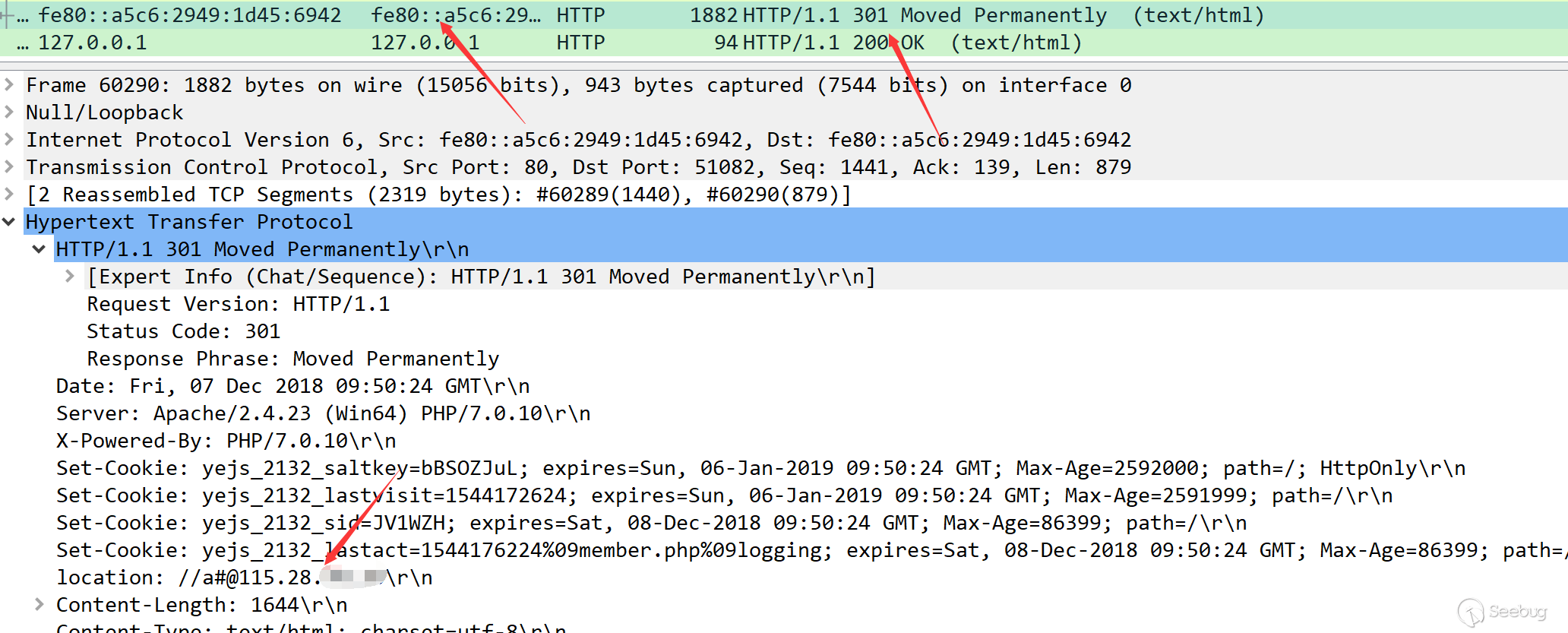
We successfully bypassed various limitations.
Exploits
Now that we have mastered SSRF and arbitrary url jump, we just need to link up the attack chain. The attack process is as follows:
cutimg ssrf link=====>
The server accesses url redirector abuse at the logout
====301====>
Jump to the malicious server
=====302=====>
Arbitrary target, such as gophar, http, etc.
Of course, when you first access the cutimg page, you need to get the forghash first, and the referer should be modified accordingly, otherwise it will be intercepted directly.
Exp demo

About Knownsec & 404 Team
Beijing Knownsec Information Technology Co., Ltd. was established by a group of high-profile international security experts. It has over a hundred frontier security talents nationwide as the core security research team to provide long-term internationally advanced network security solutions for the government and enterprises.
Knownsec's specialties include network attack and defense integrated technologies and product R&D under new situations. It provides visualization solutions that meet the world-class security technology standards and enhances the security monitoring, alarm and defense abilities of customer networks with its industry-leading capabilities in cloud computing and big data processing. The company's technical strength is spanly recognized by the State Ministry of Public Security, the Central Government Procurement Center, the Ministry of Industry and Information Technology (MIIT), China National Vulnerability Database of Information Security (CNNVD), the Central Bank, the Hong Kong Jockey Club, Microsoft, Zhejiang Satellite TV and other well-known clients.
404 Team, the core security team of Knownsec, is dedicated to the research of security vulnerability and offensive and defensive technology in the fields of Web, IoT, industrial control, blockchain, etc. 404 team has submitted vulnerability research to many well-known vendors such as Microsoft, Apple, Adobe, Tencent, Alibaba, Baidu, etc. And has received a high reputation in the industry.
The most well-known sharing of Knownsec 404 Team includes: KCon Hacking Conference, Seebug Vulnerability Database and ZoomEye Cyberspace Search Engine.
以上是 Analysis of Front-End SSRF in Discuz x3.4 的全部内容, 来源链接: utcz.com/p/199381.html


